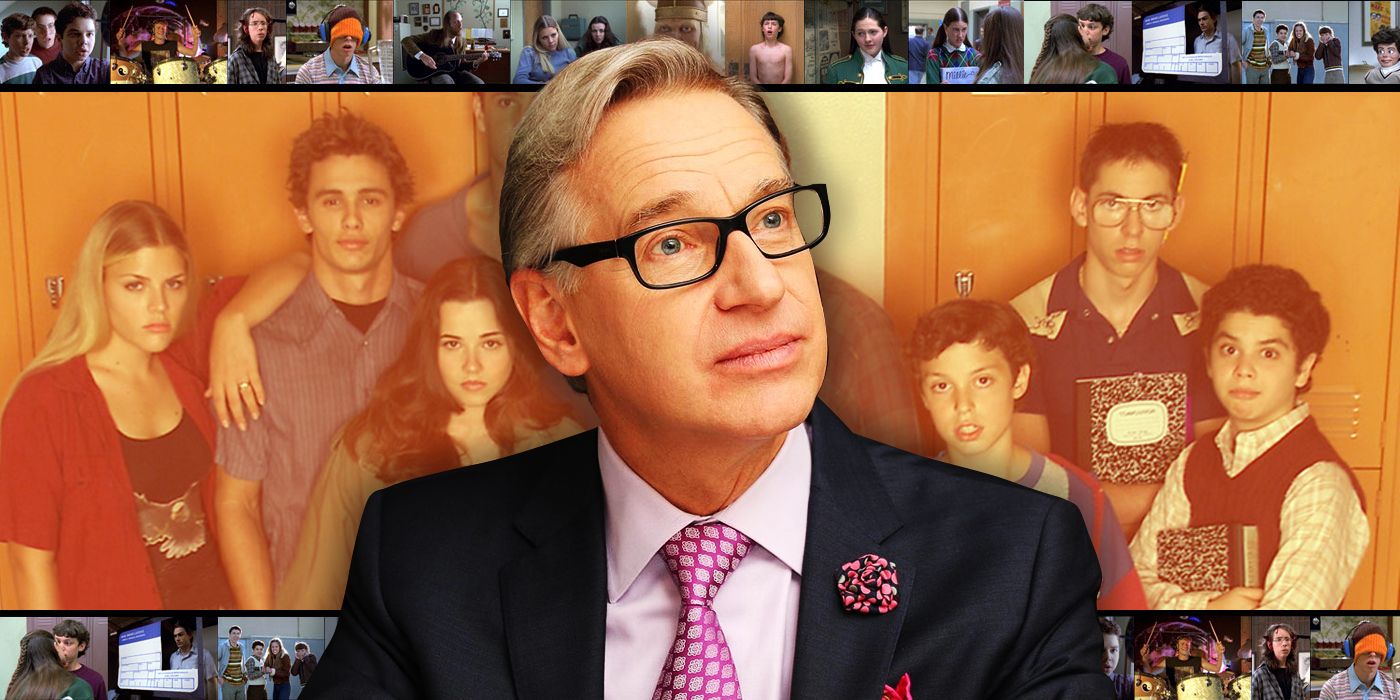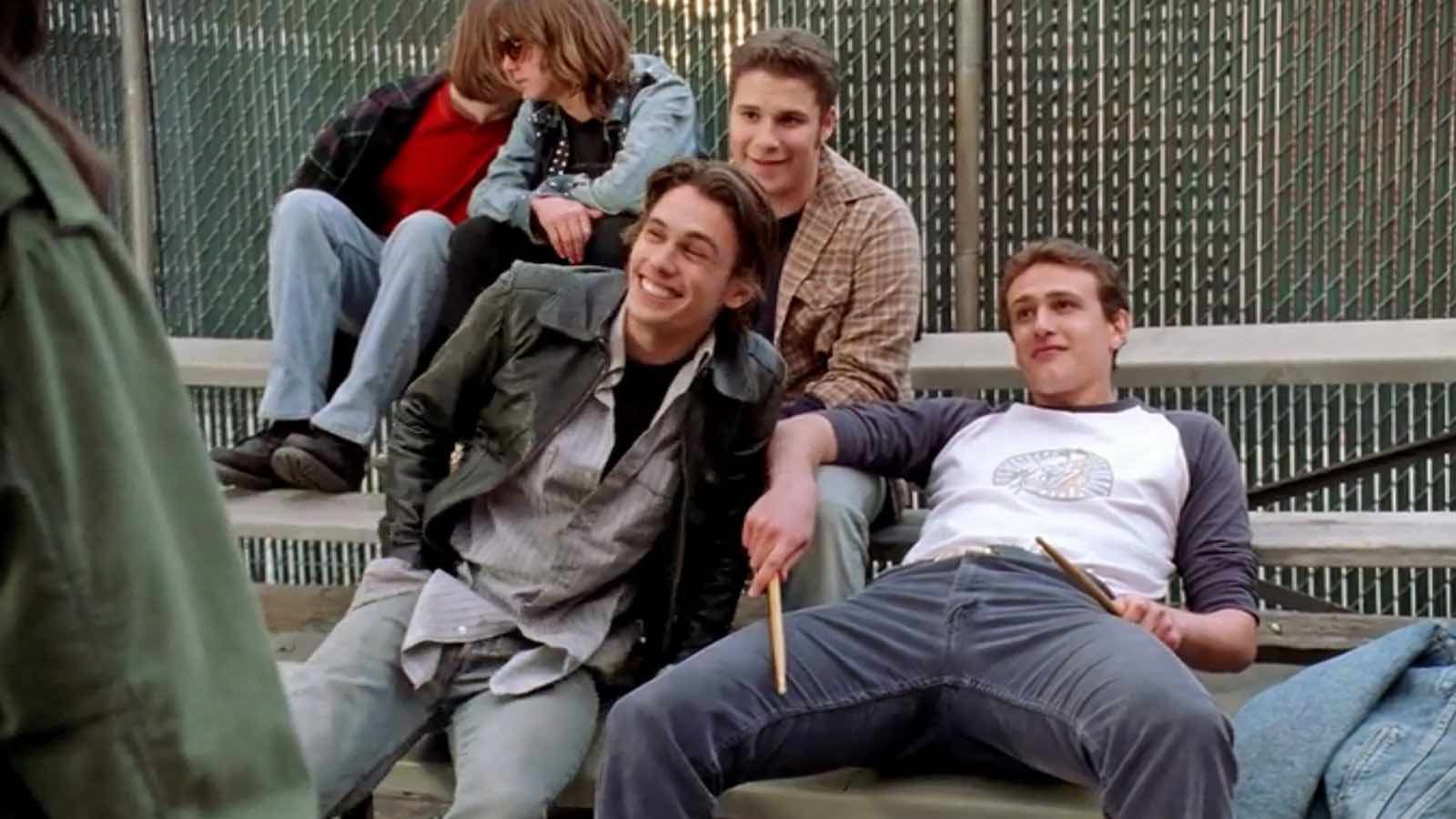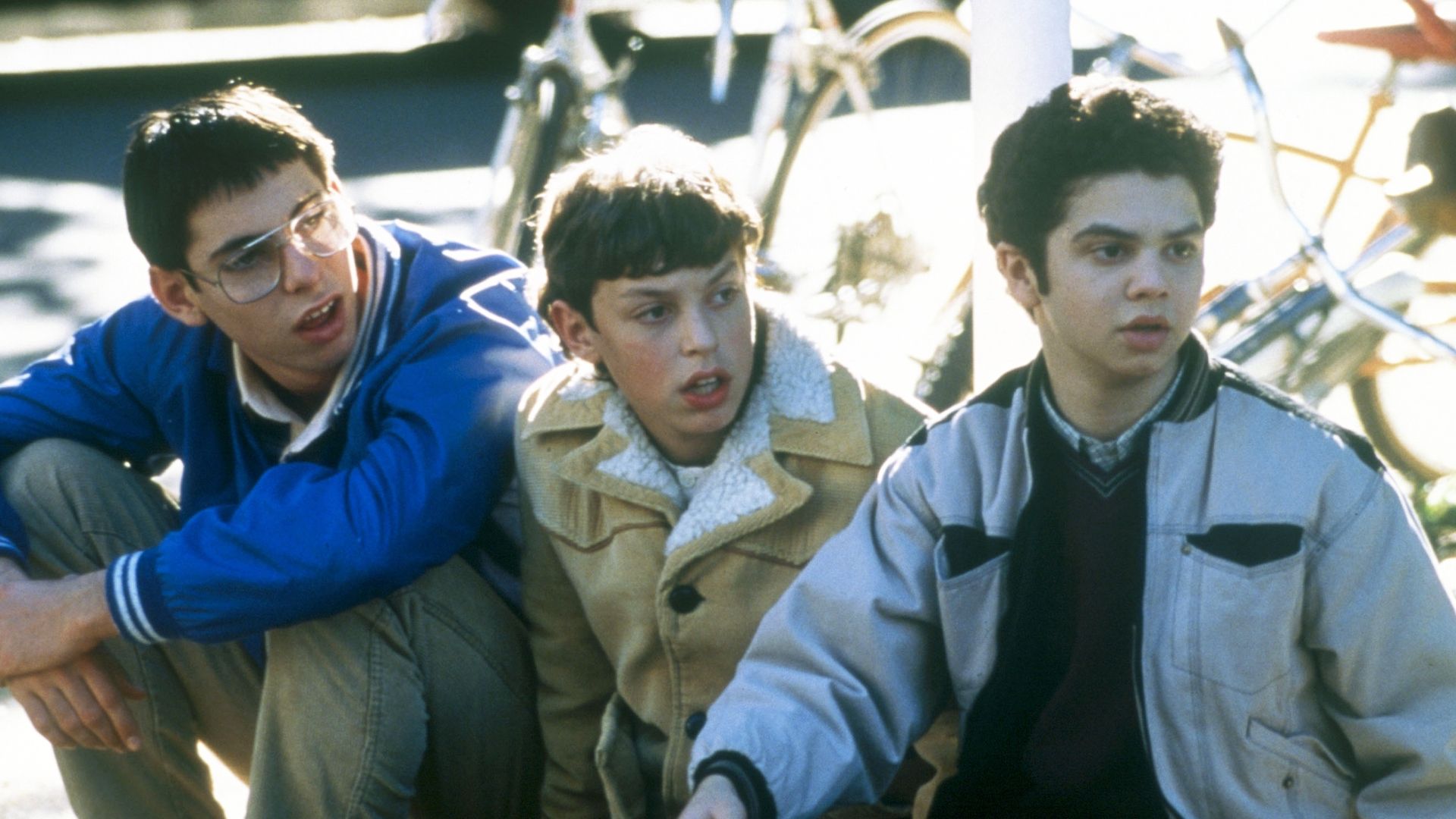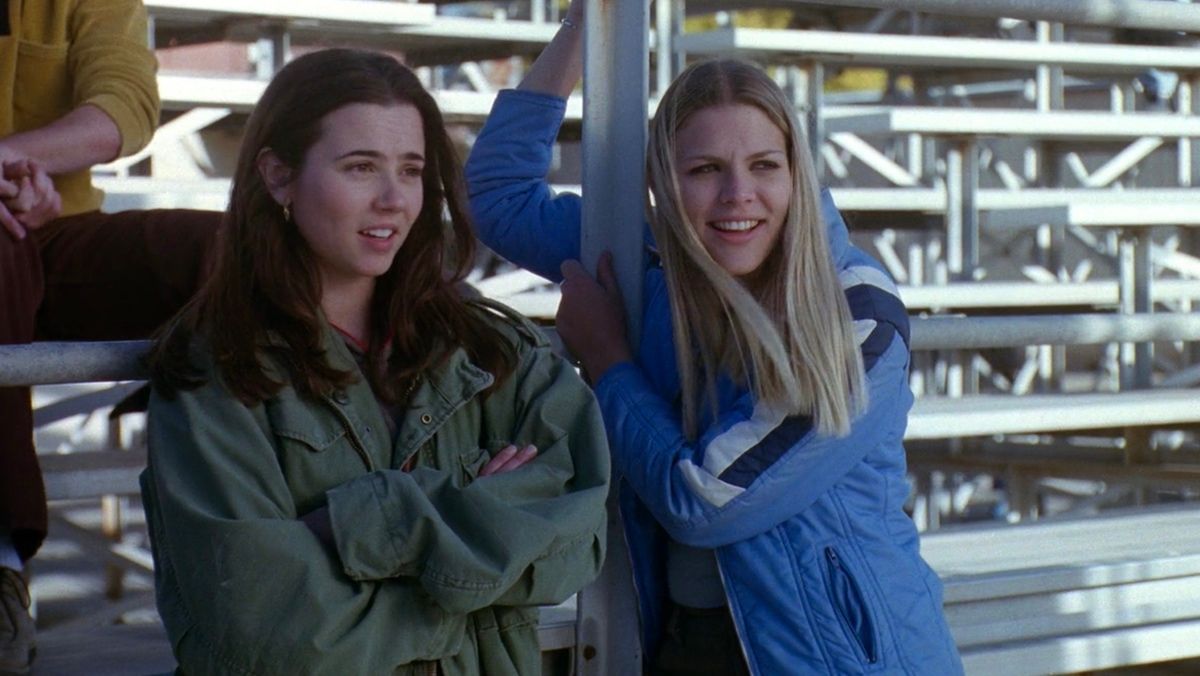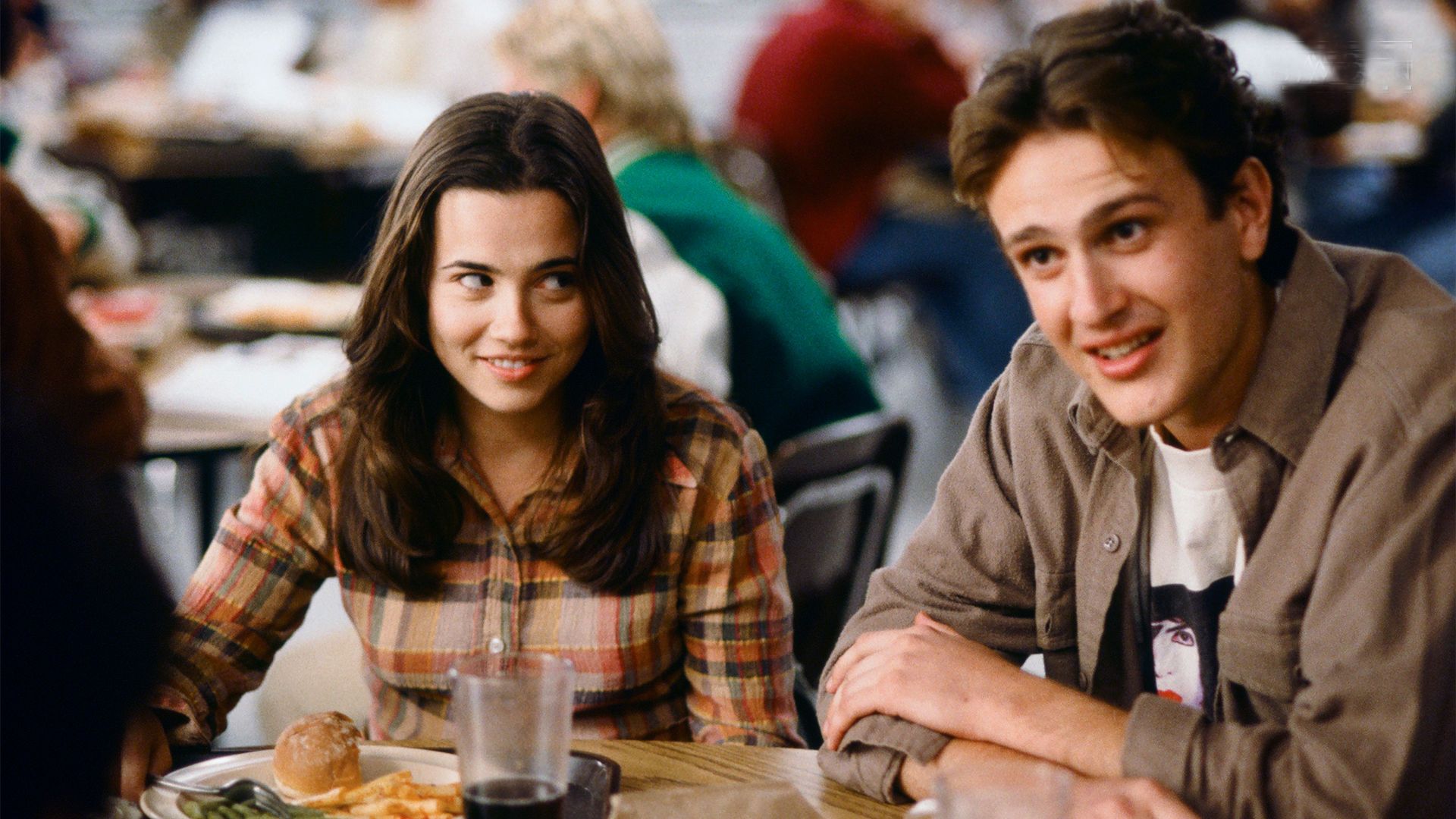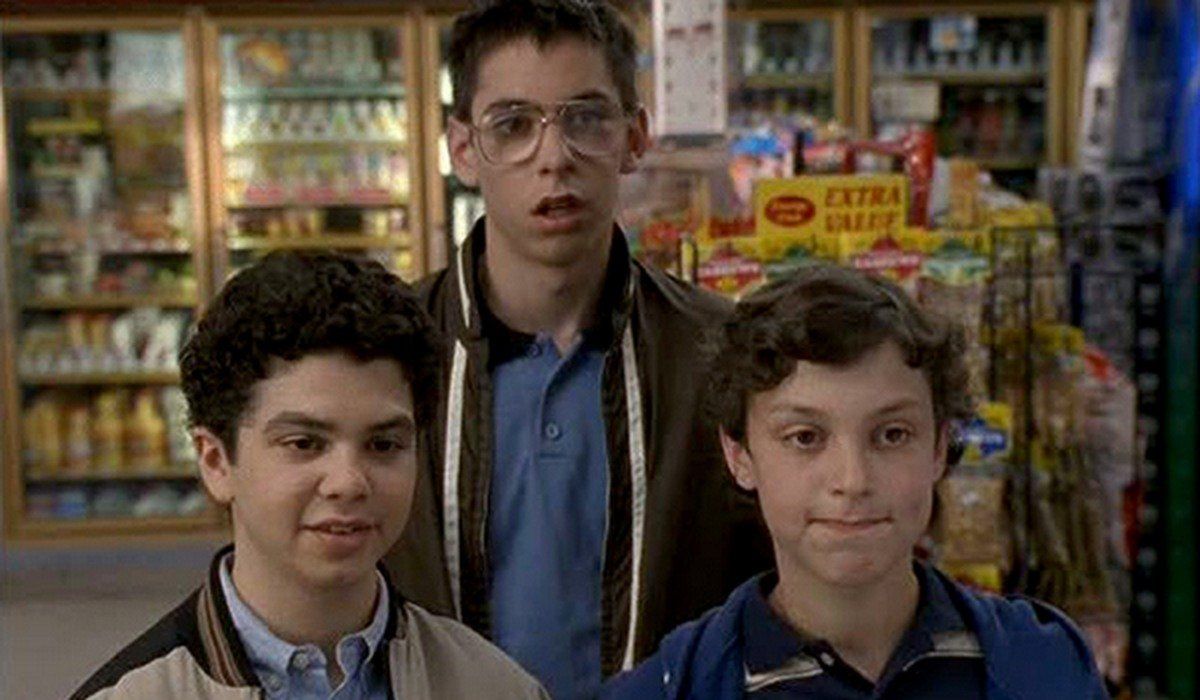Freaks and Geeks is a deeply personal piece of work for creator Paul Feig. Before he’d go on to direct huge films like Bridesmaids, Spy, and Ghostbusters, Feig bared his soul on network television for 18 episodes, drawing from his own life experience to craft a high school story the likes of which audiences hadn’t really seen before. Freaks and Geeks was never a show about wish-fulfillment. It showed high school for what it’s really like for the majority of kids: a place where the best you can hope for is to just make it through the day. Life as a teenager is full of small victories, and Freaks and Geeks relished these moments through its tremendously talented ensemble cast.
Despite critical acclaim, Freaks and Geeks was battling against NBC from the get-go, as a new network president clearly did not understand the show. It aired 13 episodes before being cancelled, with the remaining episodes later airing on Fox Family. But despite lasting only one season, Freaks and Geeks has endured for two decades as an endlessly relatable, entertaining, and moving piece of storytelling set in amber.
With Freaks and Geeks now being released on digital platforms for the first time ever, I recently had the chance to speak with Feig about the show. Having been a huge fan of the series, I took the opportunity to ask him some burning questions I’d always had: what led to the decision to make the protagonist female? Did NBC’s decision to air episodes out of order mess with their planned storylines? How did they approach story structure? And of course, how does he feel about a potential reunion?
The conversation also touched on the deeply personal nature of the series, and the decisions made at the time about how the show looked that were controversial then, but have made it timeless and cinematic in the long run. He also talked about how a discussion with network censors led to the “Chokin and Tokin” storyline, and how the original plan was for Sam’s crush on Cindy to play out over multiple seasons before being accelerated when the threat of cancellation loomed large. And finally, I asked Feig if the characters are OK today.
It’s a wide-ranging and insightful discussion about one of the best TV shows ever made. Check out the full interview below.
You’re still talking about this show that came out 20 years ago and was canceled after one season. But the longevity of it has just been incredible. What’s that like for you?
PAUL FEIG: It's everything you hope will happen when you create something that usually is more of a movie. I guess it's TV, too. You always just hope whatever you do is going to have a longevity, and that people will like to keep watching it and new people will find it as the years go by. But it really happens so rarely. Things can get a small fan base, but the fact that this one's just grown and grown over 21 years and found new generations of people who like it. We have parents telling me that they have their kids watch it before they go off to high school, which is honestly one of the main reasons I wanted to make the show is to be able to let that age know, okay, here's what's coming up. It's not you. It happens to everybody. So just get ready and then you'll get through it. So it's very, very, very gratifying. And I just have to pinch myself sometimes. But also there is so many talented people involved that if anything had a chance of staying in the public eye and continuing to entertain people, it was this group of people that we assembled.
I know that you wrote this pilot and brought it to Judd, and then you guys developed the pilot together, and then that's what you shot. But I've always found it interesting that you're both men, and you chose to make the protagonist female, much to the show’s benefit. What drove that decision?
FEIG: It was my decision, because when I wrote it, I wanted to write a show about all the people I knew in high school. I didn't see any of us accurately portrayed. And so, obviously, I wanted to base it on my life, but I was an only child. And so originally I thought that would be it, but it's like I really wanted to have a female leading character. Because when I was a kid, the thing I wanted the most in life was an older sister. I just always wished that had happened and all that. So this was my chance to invent the older sister I never had.
What was fun about it was, I was in my mid-thirties at the time, a very angst-y, mid-thirties guy, and basically found that sort of the maturity level of a 35-year-old man was about the same as a 16-year-old teenage girl who was at least thoughtful and kind of smart. And so it was very fun to channel all my angst into that character and work through things. But also wanting to, obviously, not just to let her have a male personality in a female body. Most of my friends growing up were girls and women, and I've always just been very close with all my female friends. I just liked telling those stories. So it all aligned to be sort of the perfect vehicle to tell these stories.
Well, one of the reasons I think that the show endures is that it feels true to life in that high school is full of victories in the sense that you just get through the day, not necessarily in the sense that I did the thing that I wanted to do. And I know you guys have talked about how the network wanted more victories in the show, but I was struck by the ending of the pilot where the music is swelling and Sam and Cindy are dancing on the dance floor. And that feels like one of the more overt, victorious moments of the series. Was that always the ending to the pilot, or was it something the network wanted you to do?
FEIG: No, that was always the ending when I wrote the very first spec version of it. I like happy endings. And I put them all through so much that to me it was a small victory because it's for that one moment they're having fun. But then in teenage life, the next moment it's all going to turn to shit. And so I am always looking for these moments of victory that are personal victories, and that aren't just over the top victories. But just the goal of the show and my storytelling in general is just, you get through something, you survive it, and you come out optimistic on the other side, even though you didn't get everything you wanted.
This is almost 18 hours of story, which nowadays is enough to be three seasons of a Netflix series or something. But not only that, each episode feels like a mini-movie in and of itself. I think the aesthetic is very cinematic, and it holds up really well. I was just curious what your guys' approach to story structure was in approaching each episode?
FEIG: Yeah. The rule was always a very simple story. Let's just have very simple stories so that we can have the room to sit with the characters and watch them go through the things that this story would put them through. I mean, when Neil got the guys out there looking for his father with the remote control, it was just fun to then have them sitting on the curb, resting, talking about how they viewed the world and relationships and all that. That could seem like a detour or a filler, but you're learning about these characters and you're having fun with these characters. So that was always really the goal.
And then a lot of the stories came from either my life or when we did our writers' room for the first two weeks, I just made this big questionnaire. I'm sure you've heard about it, like 20 questions about what's the worst thing that happened to you in high school, the best thing in high school, all that. And we would just trade the stories for two weeks. And out of that came all the other stories that were true stories.
So then we just took it and then just let the characters show us where they wanted to go. That's the nice thing about a show with that many characters and also two groups that you got to bounce between. But we had never even had like a C story. Most shows, especially hour long shows, have an A story, B story, C story, D story. And we tended to just be A and B stories and they tended to intersect with each other. So simplicity was really the rule of the day.
I have to laugh — it makes me very happy when you say that the show is very cinematic, because when we were doing it back then, people coming onto the show felt that we looked like an old TV show. Like in 1999, 2000, that's when TV was getting very fancy with moving cameras and everything, trying to be as cool as movies were. And my edict was like, I don't want any fancy camera moves on the show. This needs to be shot almost like a 1970s TV show. It's all about the performance. Because the last thing we wanted is the camera's going around the table behind a pillar, and that's right when one of our kids does something hilarious that we didn't expect, and then it's not on camera. So it was just like, let's just shoot this simply. And some of the directors just say like, "Oh no, actually let's not do it that way. Let's just do this very simple way of doing it." But it was Jake Kasdan, when we were doing the pilot, he just loved the style because he said the same thing. He goes, "This feels like an independent movie." And I was like, oh man, because I've been hearing from the older guys that we’re being hacky. So it’s kinda funny, but now it's kind of like a full circle.
Well, it also just makes it so true to life. So many of the stories are so specific that they're very relatable. It's shocking the amount of storylines I lived through myself in high school, and I'm sure that's everyone else's experience. But even the lighting in the show, I remember sitting at my dining room table playing games with my friends, and you had the light from the dining room table and it was a little dark everywhere else. It's not pushing anything too hard. It just puts you right back in that frame of mind.
FEIG: Yeah. It was a real edict that we had to make the show feel and look very realistic. Down to when we did the pilot, I was very specific about I wanted us to create what I called the Midwestern filter, which was I wanted to drain a lot of the color out. I didn't want it to be a bright, poppy show, because other shows like this were that way. They were very bright and then everybody was dressed nice and all this. And I really brought in all my yearbooks and just those were all the reference pictures everybody went from.
It's very honest thing, like the Weir's house had to have paneling, because everybody had that back then. And we had Russ Alsobrook who was our DP. Bill Pope shot the pilot and really set the tone for it. Then Russ came in and carried it along. And so everybody was very slavish to the desire to make the show look very real. It might've been one of the many reasons why we got cancelled (laughs). Because for audiences back then, they may very well have looked at that and gone like, "Oh, that looks depressing," or "That's not fun and poppy and escapist." Which is what television was trying to do back then, which doomed us from the start.
I was also curious, I know right from the get go, the network was pulling episodes and your stuff is airing out of order or you're missing story points. How disruptive was that to you as you're trying to craft a story that is ongoing and make sense for people?
FEIG: It didn't affect us too much as far as writing. The only thing, and it didn't even throw us, it was just something we had to adjust was when we were off for two months, they were going to put us back on a different night. Judd and I decided let's write a new episode that will reintroduce the characters. So that's where “Carded and Discarded” came from.
If you want to be a real purist, just go from the episode where Nick declares his love to her, and then the next episode was supposed to be the breakup. So if you look at “Carded and Discarded,” they're in this sort of weird... Because he had that weird moment at the end of “Dead Dogs and Gym Teachers” with him singing “Lady L” and then suddenly they're kind of cool in that episode. And then she's like, "I got to get rid of this guy" in the next episode. So I love “Carded and Discarded,” It's such a funny episode, but I always go like, oh, you're not supposed to be there.
Another thing that was really striking is the later episodes, some of which didn't even air, the show gets even darker. Was that when you guys knew that maybe you weren't going to come back? Did it feel like you were getting away with something there?
FEIG: Well, no. We did see the writing on the wall because, honestly, I wrote and directed the finale before we shot the last four episodes, because we didn't know when they were going to pull the plug. And Judd famously said to me, "You know, I think the show is going to end. You better tie it up." You know? And so then I just held that off because we got those other four done. But the only thing that accelerated was this poor Cindy Sanders storyline, because that was supposed to go on for many seasons, the sort of unrequited love of that. And then we were like, we’ve got to wrap this one up. And so it was like, okay, she falls in love with him, and then she's kind of a monster and then they breakup. So it definitely felt a little accelerated to me, but at the same time it did make me laugh, just the circumstances that he kind of got us disillusioned with her. But like the pot episode [“Chokin and Tokin”], which was the last one that ever aired, and there's a lot of people say that it got us cancelled, we used to call the censor to ask what we could get away with. And you would always find out something you could get away with that you didn't think you'd get away with. And out of one of those conversations came something about pot. Because we were kind of like, they're freaks. You never see them doing anything like that. So we should at least have a pot thing, but could we show it? They're like, "Well, you can show it, but only if it has a negative impact on the character." I was like, "Oh, cool. That's great. Lindsay’s going to have a really terrible time with pot." (laughs) Which, for me, makes sense because in my life, I smoked pot twice, and it was a horrible experience both times. So we were just kind of like kids in a candy store. Like, oh good. Here we go.
Well, I spoke with Judd and he told me when the show was cancelled, there was an offer from MTV to continue going on, but it was at a much lower price point. And I'm curious what that decision-making was for you. Were they going to have to cut the cast in half? And was it just going to be a lesser version of the show?
FEIG: Yeah, it was a weird time for me because my mom died two days before we got cancelled. So I was a little out of sorts, but I remember hearing that. We probably just had to lose so much stuff and music and budgets. We were already always strained on our budget as it was. And I think I was just kind of... I don't know, it was weird. I was so thrown and we'd worked so hard on that show. I mean, you say it looked like a movie. That's really how we treated it. So, we were ready to drop at the end of those 18 episodes. And then my mom dies, and I think I had a moment of like, “I can't even deal with any of this.” And then very quickly after the decisions were made, then you're kind of like, oh my God, what did we do? Could we have pulled it off if we had done it? But I don't know. There's moments so many times I go like, ‘Wow, we just got away with these 18 episodes,’ and I'm sure we would've done other great episodes, another great season. But at the same time, it's set in amber now and there's something lovely about that.
Yeah, it's this perfect little capsule there that anyone can pick up, as you say, as a primer for high school of like, "Here's what's going to happen. Don't worry." And you get a complete story.
FEIG: Yeah. People always go, "Oh, it's so sad you never got to end the series." It's like, "Well, we did end the series." That whole episode was about everybody gets put on a different path. And we do that at the end of the series because it's like when you graduate high school, you don't know where half the people you went to high school with go. I've always said the only true final episode for a show ever was Six Feet Under because it showed how each one of the characters died. Now, the show's over.
Well, to that point reunions are a big deal right now. You guys have been asked about it forever. How are you feeling about that right now? I know you've been pretty steadfast against it.
FEIG: Yeah. Again, I would say if suddenly this amazing idea hit me, then, sure, I would do it, but I'm just nervous about it. Because you can count on your hand the number of reunions where you went like, "Oh, I'm so glad they did that." After you watch it, you're almost always like, "Hmm, I kinda wish they didn't do that." (laughs) Again, we're all pretty clever and have a lot of stories to tell. And also the nice thing is our cast is so young, so it's not like one of those reunions where you're like, "Ooh, look how old they all are now." But now our cast is just all famous. So I always joke that we couldn't afford to do it because they all cost too much now. But I know that there's interest from them. I think everybody's interested in it. It would just have to be so great that it just added to the canon, if you will. But, hey, I never say no to anything. Never shut the door on anything. It just has to be great.
And you have a pretty easy in to just do a one-off deal. It was set in high school. You do a high school reunion.
FEIG: Right, exactly. Exactly.
I know this show was deeply personal to you. I was wondering, is there one aspect, one episode, one sequence, one scene, one character that feels the most personal to you when you look back on the show?
FEIG: Well, I mean, Lindsay really. Lindsay Weir is my favorite creation because that's the only character that wasn't based on anybody I knew. It was based on who I wished my sister was. So even though I look at Sam Weir and loved that, because that's so based on me. I mean, all the dumb stuff he does is all the stupid stuff I did it. The suits and robot costumes and all that. But I just loved Lindsay because she was such a beautifully conflicted, intelligent character who was trying to be mature, trying to fit in and caught between sort of adult world and teen world in a way that it's so relatable just for all of us, because all of us are stuck in that no matter how old we are really. It's hard to leave your adolescence behind because all your scars and everything come from that. So I just thought she was just always the perfect vehicle for that, and I just loved writing for her. And Linda Cardellini was just so brilliant that anything we would give her, she just nailed every time. It was just so exciting to watch. I could not love Linda more. I just continue to be such a fan of everything she does.
Well, and finally for you, my wife is a huge fan of the show and I told her I was talking to you, and she wanted me to ask you if these characters are okay now. She feels so deeply about these characters. Are they okay?
FEIG: Yeah, yeah, they are fine. I always thought Daniel probably went through some trouble, but they're all fine. Because, again, I'm an optimist. I like happy endings and they went through it in growing up, and maybe they've gone through some divorces and all that. But I think they're all great. I think they're all happy. As happy as they can be in this world of you can't always get what you want.
Wonderful. Well, thank you again so much for your time, and thank you for the show. I hope to continue talking to you about it for years and years to come.
FEIG: I would love that. Thanks, Adam. I appreciate it.
Freaks and Geeks is now available to purchase on digital platforms, including iTunes, Amazon, and Google.

